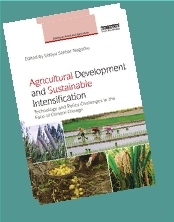West Texas has long been known for its vast agricultural landscapes and diverse farming practices. With its fertile soil, ample sunshine, and innovative farmers, the region has constantly evolved to meet the growing demand for food and agricultural products. In recent years, the area has witnessed an influx of investment in plant agricultural systems, making it a hub for cutting-edge farming technology.

One company leading the charge in this agricultural revolution is an agriculture data and technology firm with plans to invest millions of dollars in West Texas. With an investment of $510 million in Amarillo and over $670 million in Lubbock, this company aims to revolutionize the way we grow alfalfa and other crops in the region.
Alfalfa, a highly nutritious and versatile forage crop, has been a staple in animal feed and livestock production for centuries. Its ability to thrive in various climates and soil conditions has made it an ideal choice for farmers around the world. However, cultivating alfalfa can be a labor-intensive process, requiring careful monitoring of soil moisture, nutrient levels, and pest control.
The investment by this agriculture data and technology company aims to address these challenges by introducing an innovative alfalfa growing system. By leveraging advanced data analytics, precision farming techniques, and state-of-the-art technologies, this system promises to revolutionize alfalfa cultivation in West Texas.
One of the key aspects of this innovative system is its use of real-time data analytics. Sensors strategically placed in the fields continuously monitor soil moisture levels, nutrient content, and temperature. This data is then transmitted to a central hub where it is analyzed by sophisticated algorithms. Based on the analysis, farmers receive precise recommendations on irrigation schedules, fertilizer applications, and pest management strategies.
By utilizing this data-driven approach, farmers can optimize their irrigation practices, reducing water wastage and ensuring that crops receive the exact amount of moisture they require. This not only leads to better crop yields but also contributes to water conservation efforts in the arid regions of West Texas.
Furthermore, the system's ability to monitor nutrient levels in the soil allows farmers to apply fertilizers sparingly and accurately. This not only reduces the overall use of fertilizers, minimizing the environmental impact, but also ensures that crops receive the necessary nutrients for healthy growth. With precise nutrient management, farmers can enhance the nutritional quality of the alfalfa, making it an even more valuable feed source for livestock.
In addition to data analytics, precision farming techniques play a crucial role in this innovative alfalfa growing system. With the use of GPS technology, farmers can precisely track their equipment's movement and field operations. This enables them to apply fertilizers and pesticides with utmost precision, minimizing wastage and decreasing the environmental footprint of agriculture.
Furthermore, the system employs state-of-the-art machinery equipped with advanced sensors and cameras. These machines can detect and remove weeds, thus reducing the need for herbicides. Additionally, they can identify and predict pest infestations, allowing farmers to take timely preventive measures and minimize crop damage.
The implementation of this advanced technology in West Texas's agricultural systems not only benefits the farmers but also contributes to the region's economic growth. The investment by this agriculture data and technology company is expected to generate numerous job opportunities, both directly and indirectly. From research and development roles to machinery operation and maintenance, the demand for skilled workers in the agricultural sector will undoubtedly increase.
Moreover, this investment will further strengthen West Texas's position as a leader in innovative plant agriculture. By embracing cutting-edge technologies and sustainable farming practices, the region can attract more investors and encourage the adoption of such systems by local farmers. This, in turn, will lead to increased productivity, economic growth, and the overall well-being of the farming community.
In conclusion, the investment by this agriculture data and technology company in West Texas is poised to revolutionize the way we grow alfalfa and other crops. Through the use of real-time data analytics, precision farming techniques, and state-of-the-art machinery, this innovative alfalfa growing system promises to optimize crop yields, conserve water, reduce environmental impact, and boost the region's economy. By embracing these advancements, West Texas is paving the way for a more sustainable and prosperous future in plant agriculture.
Keywords: alfalfa growing system, West Texas, agriculture data and technology, precision farming, real-time data analytics, sustainability, economic growth.
